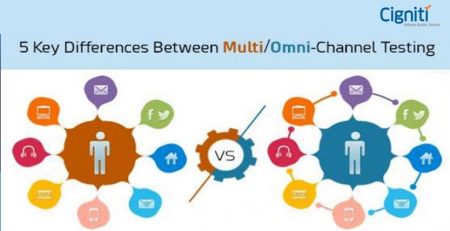Ensuring Scalability and Performance: Selecting Tools That Grow With Your Mobile App
|
Listen on the go!
|
Today, mobile apps are no longer a luxury but a necessity for businesses striving to stay competitive. Whether it’s an e-commerce platform, a banking app, or a fitness tracker, the expectation is clear: the app must perform flawlessly and scale effortlessly to meet growing user demands.
The success of your mobile app hinges not just on its initial launch but on its ability to scale and perform consistently as your user base expands. Selecting the right tools to support this growth is critical.
The Importance of Scalability and Performance
Scalability refers to an app’s ability to handle an increasing number of users, transactions, or data without compromising performance. Performance, on the other hand, encompasses the speed, responsiveness, and stability of your app under various conditions. Together, they determine your app’s user experience and, ultimately, its success in the market.
As of 2024, mobile apps account for more than 50% of global internet traffic, and users are becoming less tolerant of slow-loading or glitchy apps. According to a study by Google, 53% of users will abandon a mobile site if it takes longer than three seconds to load. In the context of mobile apps, the stakes are even higher—users expect instant responsiveness, and failure to deliver can lead to high churn rates.
Choosing Tools That Scale with Your App
Selecting the right tools for your app’s development, testing, and monitoring is essential for ensuring scalability and performance. Here’s how you can approach this:
Cloud-Based Development Platforms
Cloud-based platforms like AWS, Google Cloud, and Microsoft Azure offer scalable infrastructure that grows with your app. These platforms provide services such as load balancing, auto-scaling, and content delivery networks (CDNs) that help manage increased traffic without degrading performance. Moreover, cloud-based platforms allow developers to build and test apps in environments that closely mimic real-world conditions, ensuring that your app is prepared to handle scale from day one.
Download Whitepaper: 10 Best Practices for Automated Regression Testing: Future-Proof Your Mobile Apps
API Management Tools
As your app grows, it’s likely to integrate with multiple third-party services, each bringing its own set of Application Programming Interface (APIs). Tools like Apigee, Kong, and Postman provide robust API management solutions, enabling you to monitor, scale, and secure API traffic effectively. These tools also offer analytics that helps you understand usage patterns, allowing you to optimize performance proactively.
A 2023 report by Akamai highlights that API traffic now represents over 83% of global internet traffic, illustrating the critical role of effective API management in-app scalability.
Application Performance Monitoring Tools
Application performance monitoring (APM) tools are essential in mobile app testing as they provide real-time insights into the performance of an application across various devices, networks, and user environments. These tools help identify performance bottlenecks, such as slow load times, crashes, and memory leaks, allowing developers to address issues before they impact end-users.
By monitoring key metrics like CPU usage, network latency, and error rates, APM tools ensure that mobile apps deliver a smooth and responsive user experience, ultimately contributing to higher user satisfaction and retention.
Automated Testing and Continuous Integration Tools
Ensuring your app performs well as it scales requires rigorous testing, which is where automated testing and CI tools come into play. Tools like Jenkins, CircleCI, and GitLab CI/CD automate the testing process, allowing you to catch performance issues early in the development cycle. Additionally, these tools support continuous delivery, enabling your app to adapt to user demands quickly.
CI tools help maintain code quality by running automated tests on various device configurations and operating systems, reducing the risk of defects in production.
Mobile App Performance Monitoring (APM) Tools
Performance monitoring tools like New Relic, AppDynamics, and Firebase Performance Monitoring are indispensable for maintaining app performance at scale. These tools provide real-time insights into app performance, helping you detect and resolve issues before they impact users. They also offer user experience analytics, which can guide you in making data-driven decisions to improve app performance.
A study by Dimensional Research found that 75% of mobile app users expect apps to load in two seconds or less, making performance monitoring a critical component of your app’s scalability strategy.
Content Delivery Networks
Content Delivery Networks (CDNs) like Cloudflare, Akamai, and Fastly ensure that your app’s content is delivered quickly and reliably to users, regardless of their location. By distributing content across a network of servers worldwide, CDNs reduce latency and improve load times, which is crucial as your user base becomes more geographically diverse.
The global CDN market is projected to grow from $13.37 billion in 2023 to $48.52 billion by 2030, driven by the increasing demand for fast and reliable content delivery in mobile apps.
Best Practices for Ensuring Scalability and Performance
- Design your app architecture with scalability in mind, using microservices or modular design patterns that allow for easy expansion.
- Regularly review and optimize your app’s performance through code reviews, performance testing, and user feedback.
- Use the data from your monitoring tools to understand how users interact with your app and where performance bottlenecks may occur.
- As your app scales, so does its attack surface. Ensure that your chosen tools and platforms offer robust security features that can handle increased traffic and data.
- Use cloud-based testing environments to simulate real-world conditions and ensure that your app can handle scale without compromising performance.
Conclusion
Ensuring scalability and performance is not just about choosing the right tools; it’s about adopting a mindset that prioritizes long-term growth and user satisfaction. By investing in scalable infrastructure, robust API management, automated testing, and performance monitoring, you can build a mobile app that not only meets today’s demands but is also poised for future success. Remember, in the world of mobile apps, performance is everything—don’t leave it to chance.
Cigniti’s mobile app testing services are designed to ensure that your mobile applications deliver a flawless user experience across all devices and platforms. By leveraging cutting-edge tools and methodologies, Cigniti provides comprehensive testing solutions that cover functional, performance, security, and usability aspects. With a focus on continuous integration and real-time feedback, Cigniti helps accelerate release cycles, reduce costs, and enhance the overall quality of your mobile applications, making them market-ready and future-proof.
Download Whitepaper: 10 Best Practices for Automated Regression Testing: Future-Proof Your Mobile Apps





Leave a Reply